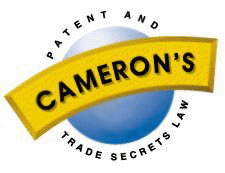
Mullard Radio Valve Co. Ld. v.
Philco Radio and Television Corporation of Great Britain, Ld. and Others
citation(s): (1936) 53 R.P.C. 323 (H.L. per Lord MacMillan)
 |
Mullard Radio Valve Co. Ld. v.
|
copyright 1997 Donald M. Cameron, Aird & Berlis
"A patentee may make a most meritorious discovery and may give an entirely adequate description of his inventive idea and of the manner of putting it into practice, but when he comes to formulate the claim to his invention he may claim a monopoly wider in extent than is warranted by what he has invented. The patentee has told us quite definitely that his invention deals with the case of a final amplifier which comprises a screening grid between the control grid and the anode and that he has invented means by which, in such a case, the screening current is prevented entirely or partially from increasing at the expense of the anode current when the anode potential falls. The problem which he set out to solve and the disadvantages which he professes to overcome relate solely to discharge tubes with a screening grid between the control grid and the anode. His discovery was that, if in a discharge tube with a screening grid between the control grid and the anode an additional "suppressor" grid, he achieved the advantageous results which he describes. That is the ambit of his invention and for that he is entitled to protection. But claim 2 makes no reference to screening grids or control grids at all. It simply speaks of three or more electrodes irrespective of their function as screening grids or control grids or suppressor grids or of their arrangement relatively to each other."
At p.346
"The fact that an article of obvious construction is discovered to give a valuable and new benefit if employed in a particular way does not entitle the discoverer to prevent everyone else from making that article. A patentee is granted his monopoly in order to protect the invention which in his specification he has communicated to the public. He is not entitled to claim a monopoly more extensive than is necessary to protect that which he has himself said is his invention."
At p. 347
"It was argued for the Appellants that if an article is new, is useful and has subject-matter, then it is necessarily patentable and entitled to protection. But a claim may be for an article which is new, which is useful and which has subject-matter, yet it may be too wide a claim because it extends beyond the subject-matter of the invention."
At p.347
"It is undoubtedly the case that a claim may be too wide, in the sense that it claims protection for that for which the patentee is not entitled to protection, or that it gives him a wider protection than his discovery entitles him to receive."
At p. 347
"If an inventor claims an article as his invention but the article will only achieve his avowed object in a particular juxtaposition and his inventive idea consists in the discovery that in that particular juxtaposition it will give new and useful results, I do not think that he is entitled to claim the article at large apart from the juxtaposition which is essential to the achievement of those results.
It is undoubtedly the case that a claim may be too wide, in the sense that it claims protection for that for which the patentee is not entitled to protection, or that it gives him a wider protection than his discovery entitled him to receive. In the present instance the patentee has claimed a monopoly of all valves with a certain feature of construction although a merit of his invention does not lie in that feature but in the utilisation in a particular and limited way of a valve containing that feature of construction. In so doing he has in my opinion over-reached himself and his claim is wider that the law will support."
At p. 351
"It is true that an inventor need not state in a claim the reasons that have led him to his invention or the stage by which he has arrived at it. But the essential characteristics of his actual invention he must state."
At p. 352
"The true principle I conceive to be this: That some articles when seen or described speak for themselves and further description as to function or purpose is needless. On the other hand, in some cases function is part of the invention and in such cases it not only can but must be included in the description to secure the validity of a claim."
At p.352
"Moreover, if function be thus an essential element in the invention and the claim be for an article unrelated to function, then it is I think illegitimate to resort to the body of the Specification to find the invention and thence derive subject-matter for the claims."
Return to:
Cameron's IT Law: Home Page; Index
Cameron's Canadian Patent & Trade Secrets Law: Home Page; Index